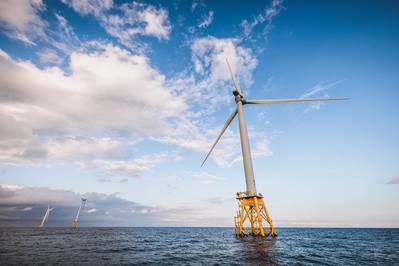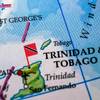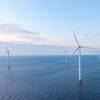Outlook ‘Surprisingly Positive’ for US Offshore Wind
It certainly has been an active few months in the U.S. offshore wind space.
Despite some ongoing issues, the fundamentals are looking surprisingly positive in the context of what has taken place over the last 12 months. In fact, the key concern for developers and the supply chain will be any negative impacts to offshore wind development arising from the forthcoming Presidential elections.
So why are we so positive?
The foundation of optimism is found in the federal plans to offer leases this year containing a minimum 22 gigawatts (GW) of capacity in 16 sites located in the Central Atlantic, the Gulf of Mexico, the Gulf of Maine and Oregon.
Further, eight other leasing rounds have been identified between 2025 and 2028/29, which should align with the Inflation Reduction Act of 2022 (IRA) related to agreements to only offer offshore wind leases when a certain amount of oil & gas leases had been offered in the prior one-year period.
It should be noted that the lease ambitions contain both bottom fixed and floating capacity. On top of around 11 GW contained in the five awarded California floating wind leases, Oregon offers a potential of close to 2.5 GW and the Gulf of Maine 11.5 GW. There is further floating wind leasing planned in the Atlantic, Pacific and Gulf of Mexico. This pipeline gives developers and the supply chain significant confidence to invest in the manufacturing and construction capacity required for floating wind.
Remaining with federal agencies, till now, six Outer Continental Shelf (OCS) developments have been permitted for 6.2 GW. Of these, one (South Fork) is grid connected, Vineyard aims to have all turbines grid connected by the end of the year and two major projects (Revolution and CVOW-C) have commenced offshore construction.
Close to 18.5 GW is currently in the federal permitting process, of which 6.5 GW is planned to be permitted within this year.
Turning to the states that buy the offshore electricity, the last few months have seen a flurry of contract cancellations and new solicitations.
- New Jersey opened the 2024 solicitation to procure between 1.2 GW and 4 GW and offshore wind, with a commissioning date of 2032. In addition to the 2024 procurement, New Jersey envisages three additional biannual solicitations, from 2026 through 2030, each awarding 1.2-4 GW, depending on the results of the previous solicitation. Respective target commissioning dates are 2034, 2036 and 2038.
- Of late, New York has witnessed much change in terms of offshore wind procurements. To start with, New York cancelled three projects that were provisionally selected to supply power, but then in May, the state released its 2024 offshore wind solicitation for a minimum 2.6 GW. We anticipate that the three cancelled projects will be favorites to secure awards.
- The Maryland legislature has passed a Bill that effectively allows state agencies to increase the size of projects with existing procurements and sets a pathway for further solicitations.
- Delaware legislators are debating whether to pass a law authorizing offshore wind procurements.
- As noted previously, in October 2023, Connecticut, Rhode Island and Massachusetts signed an MoU to collaborate on the 2023 offshore wind solicitation, with each state holding its own tender. Connecticut issued a request for up to 2 GW of capacity, Massachusetts 3.6 GW and Rhode Island 1.2 GW. In all the states plan to procure up to 6.8 GW of offshore wind capacity. The process is ongoing.
- North Carolina, Louisiana, California and Oregon all have offshore wind procurement targets.
This activity translates to over 70 imminent, short-term, medium-term, longer-term and future projects in our forecast which represent a CAPEX opportunity of more than $420 billion and an annual recurring operations and maintenance OPEX of around $9.8 billion.
We review all of the projects in the pipeline within our 117-page forecast and market report.
Outside of the U.S., Canada is advancing its offshore wind ambitions. In the North Atlantic, the province of Newfoundland and Labrador has identified 77 wind licensing areas with a theoretical potential of 94.5 GW, which includes both bottom-fixed and floating wind sites. Nova Scotia has identified six potential offshore wind development areas, all no closer than 25 kilometers from shore, for future study for offshore wind development. The theoretical potential of the areas amounts to more than 34.5 GW. The six sites contain both bottom-fixed and floating wind potential.














